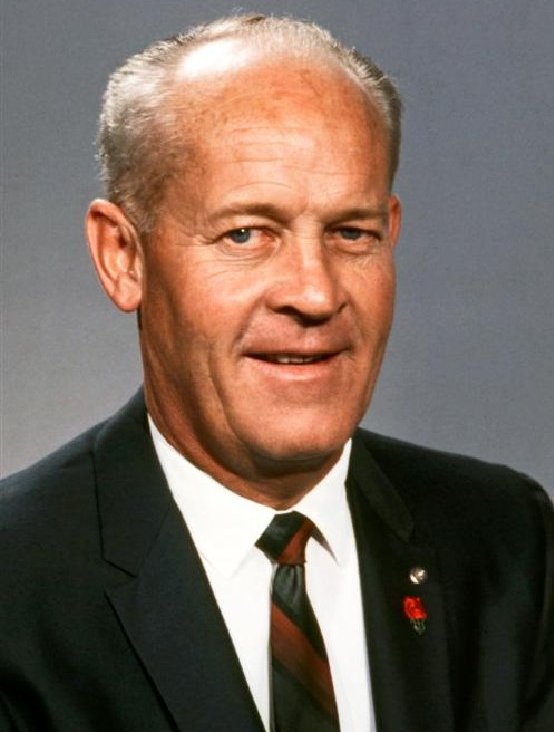
CHIEF OLIF "O.J." ROED
SDPD 11/17/1941 - 03/11/1971
08/01/1919 - 05/28/1994
San Diego Union-Tribune, The (CA) - May 30, 1994
Deceased Name: Olif Roed dies; ex-chief of S.D. police was 74
Olif J. Roed, who rose from patrolman to police chief in a 28-year career with his hometown San Diego Police Department, died of a self-inflicted gunshot wound Saturday at his home. He was 74. John Armendariz, an investigator with the county Medical Examiner's Office, said yesterday that Mr. Roed had been depressed over health problems. A .38-caliber revolver was found near Mr. Roed's body, Armendariz said.
Mr. Roed served as police chief from 1968-71, a particularly difficult period in which the city's rapid growth was accompanied by a sharp increase in many categories of crime.
"Times were tough then," recalled Ray Hoobler, who served with Mr. Roed in the Police Department and succeeded him as chief. "But Jim Roed was a perfect gentleman. He was soft-spoken. He wasn't a hard-liner. He accomplished a lot of things because of his personality."
Mr. Roed's achievements, Hoobler said, included broadening the department's links with minority communities and maintaining a high standard of professionalism among the police force.

Yet, Hoobler said, morale in the department suffered because of two crises: a disturbance involving police and youths in Mountain View park in July 1969, in which two people were killed and more than 100 arrested, and a state-county investigative report released in 1970 that found widespread San Diego police graft in the years before Mr. Roed became chief.
"Jim was the recipient of all that negativism," Hoobler said. In fact, Mr. Roed said at the time that the report was "atrocious" and wrongly cast a shadow over the department while he commanded it. Warren Morrison, a retired assistant chief who was a longtime friend of Mr. Roed, credited Mr. Roed with helping to perfect the San Diego department's system of mobile command posts for handling disturbances.
Before 1968, Morrison said, "we were kind of awkward" in responding to crowd-control problems. But under Mr. Roed, Morrison said, the department made great strides in learning to coordinate its crowd-control efforts through use of the command posts.
Among the police rank and file, said Dave Crow, a retired police captain who served under him, Mr. Roed was popular and respected for his "strong leadership."
During his years as chief, Mr. Roed was an early supporter of the department's use of computers and helicopters, and strongly endorsed federal programs to pay for college-level police training programs. Mr. Roed was born in 1920 in a house at 31st and Market streets and grew up in Logan Heights. His father drove a laundry truck and his mother worked as a nurse and governess. Mr. Roed's father died in 1921, and as a youngster Mr. Roed helped his mother by selling newspapers and magazines on the streets of the city.
Mr. Roed graduated from Logan Elementary School, Memorial Junior High School and San Diego High School. He attended the then-San Diego State College until his mother became seriously ill and he was forced to quit school to take a full-time job at a downtown dairy plant. She died in 1941.
That year, Mr. Roed -- who had long been interested in a career in law enforcement -- took an examination for admission to the San Diego Police Department. He finished first among some 500 applicants. Two months later, the city hired Mr. Roed and 14 other rookies. With time out for two years of Navy service during World War II, Mr. Roed spent the next 28 years in the San Diego Police Department. He began as a patrolman and rose through the ranks to become chief of detectives and then assistant chief, his last post before becoming chief in January 1968. Mr. Roed cited heart trouble as the reason for his early retirement in March 1971.
When Mr. Roed retired, the department numbered 990 sworn officers. It has grown to almost 1,900 sworn officers today.
Mr. Roed's son Carl, a retired Navy officer, of Sterling, Va., said yesterday that his dad "thoroughly enjoyed his years as police chief" but did not often reflect on them, and spent his retirement years traveling, playing golf and doing elaborate woodcarvings. However, Carl said, Mr. Roed's affection for police work is displayed on the walls of the Roed family home in San Diego, which are decorated with photographs and certificates from his years of service.
Survivors also include Mr. Roed's wife of 53 years, Nellie; a daughter, Maureen Winsted, of Aptos; and four grandchildren.
THE THIN BLUE LINE

